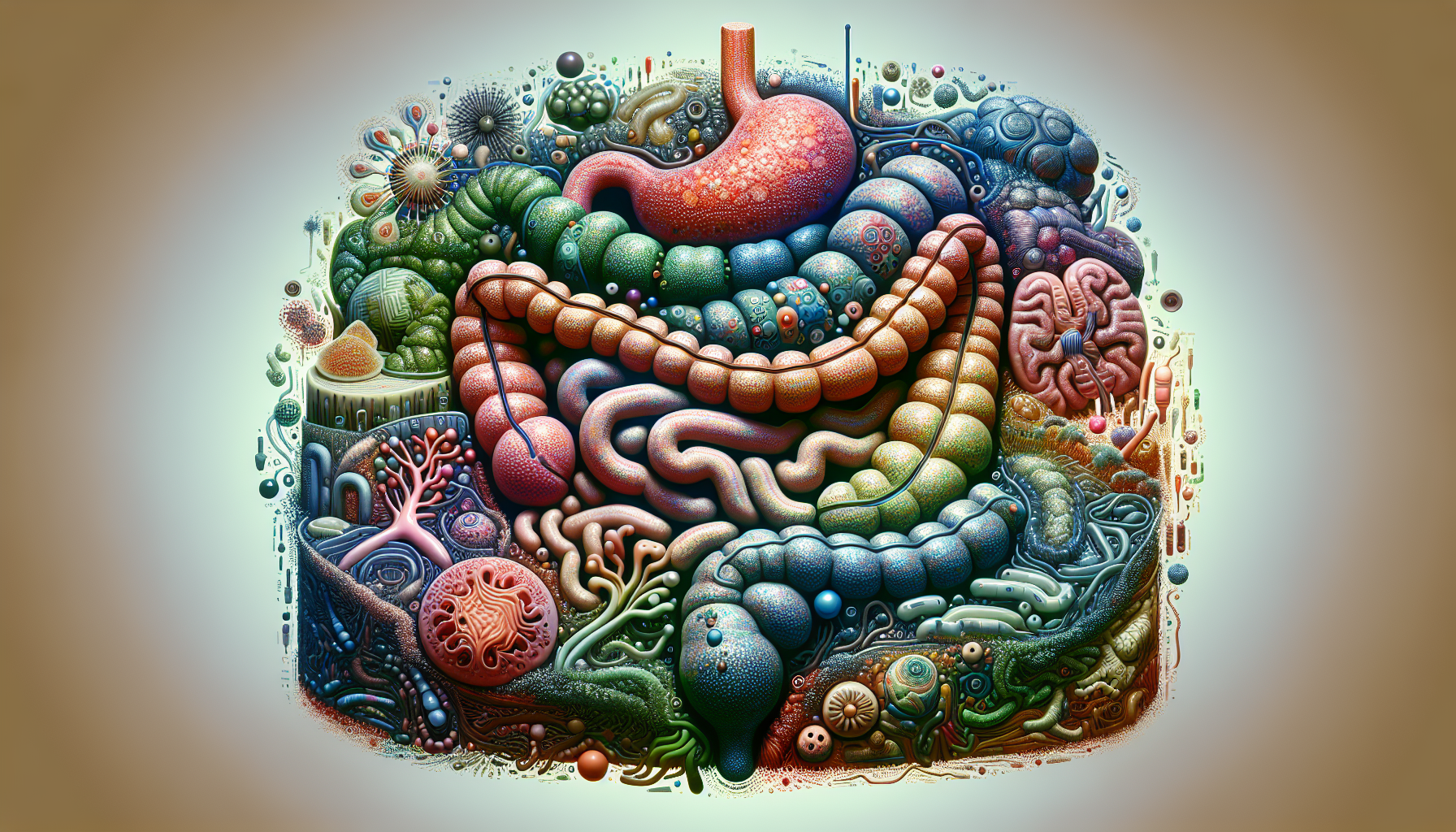In today’s fast-paced world, maintaining a healthy lifestyle can sometimes feel like an uphill battle. Amidst the myriad of health advice and trends, one key aspect often stands out due to its fundamental role in overall wellness: gut health. A healthy gut is not just about avoiding discomfort or digestive issues; it is intricately linked to numerous aspects of physical and mental health, making it a cornerstone of a holistic approach to health care.
Understanding the Gut’s Multifaceted Role
The gut is often referred to as the body’s second brain due to the enteric nervous system, which can operate independently of the brain and spinal cord. This complex network of neurons lining the gastrointestinal tract is not only responsible for digestion but also plays a critical role in our mental and emotional states through the gut-brain axis.
Moreover, the gut is home to trillions of microorganisms, collectively known as the microbiota, which perform crucial functions such as aiding digestion, producing vitamins, and training the immune system. The diverse ecosystem of bacteria, viruses, fungi, and other microscopic living things is essential for maintaining a balanced internal environment.
For those looking to delve deeper into the interconnectedness of our body systems, Understanding the Link Between Digestive Health and Immunity can provide valuable insights into how a healthy gut supports a robust immune system.
The Impact of Diet on Digestive Health
Diet is one of the main factors influencing gut health. The foods we consume can either support a healthy microbiome or contribute to dysbiosis—a disruption in the balance of gut microorganisms. A diet rich in fiber, for example, can promote the growth of beneficial bacteria that produce short-chain fatty acids, which are important for gut lining integrity and anti-inflammatory effects.
On the other hand, a diet high in processed foods, sugar, and unhealthy fats can encourage the growth of harmful bacteria, leading to increased gut permeability, often referred to as ‘leaky gut,’ and systemic inflammation. Leveraging Nutrition Therapy for Optimal Digestive Health offers a deeper exploration of dietary choices that can enhance gut health.
Exercise and Gut Health
Physical activity is another pillar of healthy living, with benefits stretching far beyond weight management and cardiovascular health. Regular exercise has been shown to have a positive impact on the diversity and composition of the gut microbiome. It enhances the growth of beneficial bacterial species, which can contribute to improved metabolic function and reduced inflammation.
The connection between regular physical activity and gut health is further explored in The Link Between Exercise and Digestive Health, highlighting how a dynamic lifestyle can support digestive wellness.
Addressing Digestive Health Issues
Common digestive issues such as irritable bowel syndrome (IBS), gastroesophageal reflux disease (GERD), and food intolerances can significantly affect quality of life. Managing these conditions often requires a multifaceted approach that includes dietary modifications, stress management, and sometimes medication or supplements.
For instance, understanding and managing food allergies is critical for maintaining a healthy digestive system. The article Understanding Food Allergies and Digestive Health provides valuable strategies for identifying and coping with food sensitivities and their impact on gut health.
The Role of Probiotics and Prebiotics
Probiotics and prebiotics play a pivotal role in nurturing a healthy gut. Probiotics are live bacteria and yeasts that can replenish and balance the gut microbiome, while prebiotics are non-digestible fibers that feed these beneficial microorganisms.
High-quality, niche resources on this topic include the International Scientific Association for Probiotics and Prebiotics which offers comprehensive scientific information on these gut health promoters, and The American Gastroenterological Association which provides guidelines and research on the clinical use of probiotics.
The Connection to Overall Health
The health of our gut affects more than just digestion. Research has shown links between gut health and various conditions, including autoimmune diseases, obesity, type 2 diabetes, and even mental health issues like anxiety and depression. This connection is due to the gut’s role in immune function, hormonal balance, and neurotransmitter production.
For a focused read on how digestive health influences other body systems, consider Brain Health, which sheds light on the relationship between a healthy gut and cognitive function.
Nurturing a Healthy Gut
Building and maintaining a healthy gut is an ongoing process that involves several lifestyle choices:
- Diet: Opt for a diverse range of whole foods, particularly those high in fiber like fruits, vegetables, and whole grains. Limit intake of processed foods and sugars.
- Hydration: Drink plenty of water throughout the day to aid digestion and nutrient absorption.
- Exercise: Engage in regular physical activity to boost your gut microbiome diversity.
- Stress Management: Practice relaxation techniques such as meditation, yoga, or deep breathing exercises to minimize the impact of stress on your gut health.
- Sleep: Prioritize getting enough quality sleep, which is crucial for gut health and overall well-being.
- Probiotics and Prebiotics: Incorporate foods rich in probiotics (like yogurt, kefir, and fermented vegetables) and prebiotics (such as garlic, onions, and bananas) into your diet.
In conclusion, a healthy gut is a linchpin of overall health, with its influence extending to virtually all areas of our well-being. By understanding the complex roles our digestive system plays and actively nurturing our gut health through informed lifestyle choices, we can open the door to enhanced health and vitality. For those eager to continue their journey towards digestive wellness, the resources provided throughout this article, along with the additional readings suggested, serve as a valuable roadmap.



